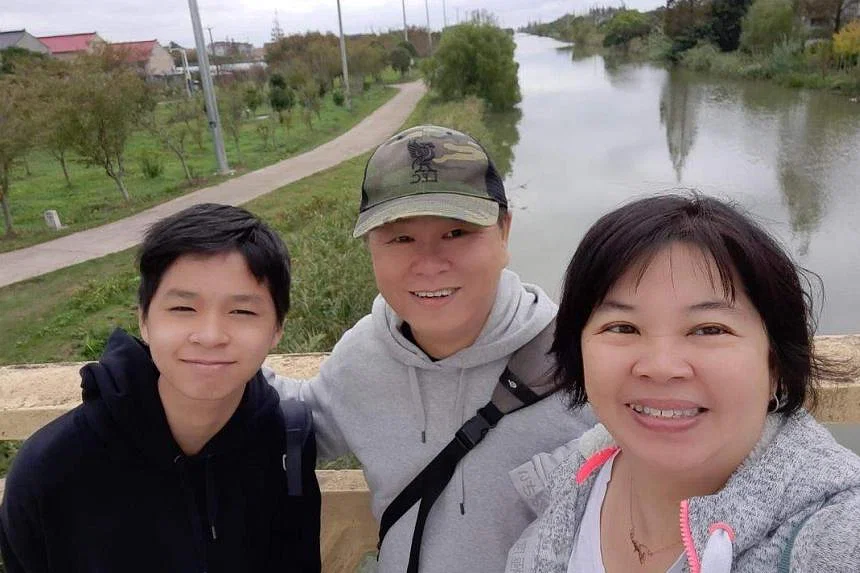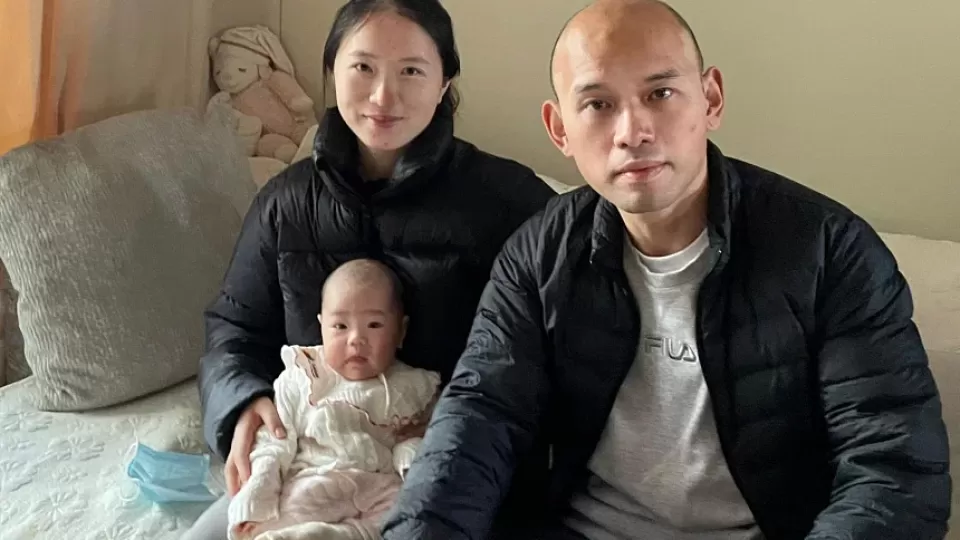December 15, 2022
SINGAPORE – When China announced the relaxation of its zero-Covid policy recently, Singaporean Ong Li-Min celebrated with his family in Shanghai with home-cooked chicken rice and wine. Since then, he has met his Singaporean friends for meals at restaurants.
This weekend will see a bigger gathering with some Hong Kong and Taiwan friends, said the 52-year-old, who has opted to play homemaker while his wife pursues a career in Shanghai.
“Not much has changed for me, besides not having to do the swab tests and the scanning at mall entrances,” he said. “We are just waiting for international travel restrictions to be lifted so that it is easier for us to visit our son in Britain and family in Singapore.”
Over in Beijing, Ms Cheang Yit Shan, a 35-year-old content marketing director who works from home, said the surge in infections happened as quickly as the removal of Covid-19 testing booths and mandatory daily swab tests.
A couple of days after the rules were relaxed, colleagues around her started falling sick. Last week, four in her team of 18 tested positive. This week, nine were down with the virus.
Work has been affected, but like others, she said the relaxation of rules “felt very liberating”. Her WeChat Moments was even flooded with posts bidding farewell to the travel code that had been tracing people’s whereabouts for the past three years.
China’s digital travel code service, which was used to check the travel history of people in the country, suspended operations indefinitely from Dec 13.
Mr Lim Hong Kian, the Shanghai-based chief executive of Surbana Jurong North Asia, summed it up for most Singaporeans in China: “After such a long time of zero-Covid policy, this is a welcome move and brings much relief as life is beginning to revert to pre-Covid-19 times.”
The 49-year-old added: ”I travel for work within China, and life was pretty difficult with the zero-Covid policy affecting our business. I have looked forward to this day for quite some time.”
At his workplace, precautionary measures are taken to minimise infections, such as frequent sanitisation, mask wearing and getting staff to do antigen rapid tests (ARTs) before returning to the office when there are cases reported.
Beijing-based K.H. Yong said his global reinsurance company offers an “Own The Way You Work” flexibility and most colleagues have taken the opportunity to work at home, especially since schools are closed and their children need to be looked after at home. His company also organises wellness programmes focusing on mental resilience, and employees have received care packages.
The 46-year-old head of branch operations, who volunteered with the Singapore Embassy in Beijing in 2021 to share official information with fellow Singaporeans amid the pandemic, said he and his wife and son tested positive last Friday. But by Monday, their fever was gone. He knows of many around him who contracted the virus but are on the mend quickly. This gives him optimism about what lies ahead.
“I would describe the mood as restrained anxiety tempered by quiet resilience,” Mr Yong said. “The streets are quiet, yet already there are signs that suggest livelier times ahead. I would not be surprised if restaurants see a good crowd this weekend.”
After nearly three years of mass lockdowns, robust contact tracing and international travel bans, the Chinese government loosened its anti-virus measures in December to reverse a worsening economic slump, and following protests against the strict controls.
Infection rates have reportedly spiked, though the true scale of cases is unknown as residents no longer need to take polymerase chain reaction tests or report their ART results.
With this sudden switch to living with the virus, Singaporeans in China are bracing themselves for an uptick in infection cases by taking extra precautions.
Shanghai-based communications professional Tan Kok Kuan, 42, started wearing N95 masks on Monday, packed food for indoor dining and avoided peak hours while travelling on the subway in order to protect himself and his three-month-old son and wife from getting infected. When he goes back to Singapore in February, he will be getting his vaccination booster shot for further assurance.
“I am anticipating a jump in cases, and we have all heard of somebody getting the virus,” he said. “Yesterday, my friend’s young girl contracted the virus at her kindergarten.”
But he noted that people around him have remained calm, though they are stocking up on cold and fever medicine and observing social distancing.
Malls and restaurants are emptier, and some medical supplies are sold out. A 40-year-old Singaporean housewife who declined to be named said when she took her daughter to see a paediatrician on Monday, she was told that fever and cough medication had run out for the last four days. There were numerous pictures of empty pharmacy shelves circulating as well, she added.
It is also hard to get grocery delivery slots. Ms Cheang, who used to get her items within 30 minutes, has succeeded only once in getting a slot in the last three weeks.
Ms Isabel Kwek, a 52-year-old general manager in Shanghai, shared how a Singaporean friend was selling ART kits on a social media chat group on Tuesday. Within a few hours, the price jumped by over 16 per cent due to overwhelming demand.

Ms Daphne Lim with her husband Chris Goh and son Ethan in Shanghai. PHOTO: DAPHNE LIM
Ms Daphne Lim, a 49-year-old sales professional in Shanghai, said her son’s international school has seen a rise in the number of teachers and students testing positive. Like many other schools, it decided to switch to online learning.
But these are all arguably small inconveniences in exchange for the newfound freedom.
“After having gone through the difficult times during the three-month lockdown in Shanghai earlier in the year, many are just happy and relieved to have relative normalcy return to their daily lives,” Ms Lim said. “We welcome the city and country’s continued easing of its Covid-19 measures.”


